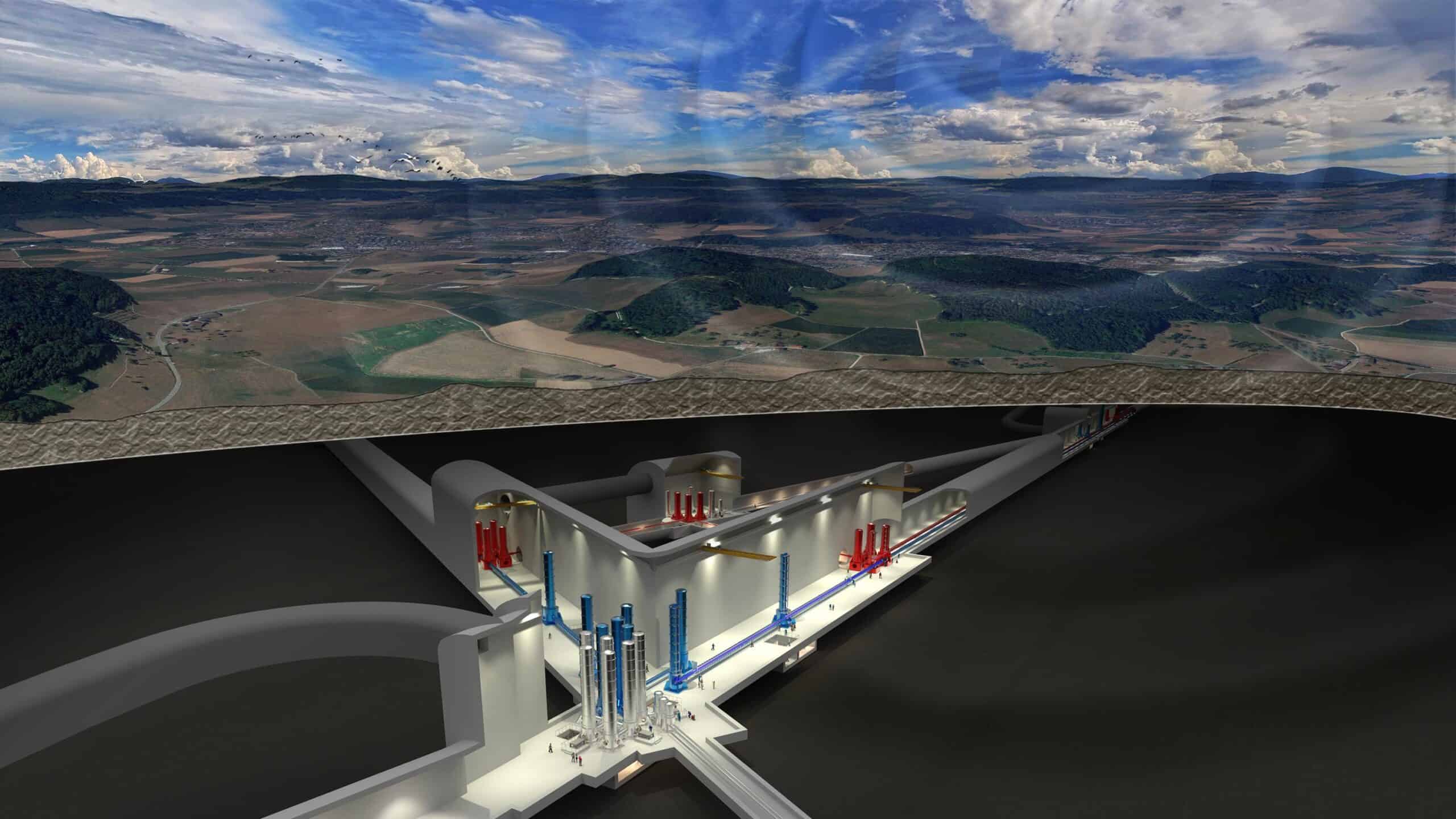
Two Dutch consortia, led by Lionite and Onnes Technologies, have each been awarded €1.375 million to develop advanced vibration damping technologies for the Einstein Telescope. The SENVIDET consortium, headed by Lionite, aims to create ultra-sensitive acceleration sensors, while the ICVI consortium, led by Onnes Technologies, focuses on cryogenic vibration isolation. These innovations are crucial for the telescope’s unprecedented sensitivity and could have applications beyond astrophysics in industries such as semiconductors and pharmaceuticals.
Advanced observatories
The Einstein Telescope, planned to be the most sensitive gravitational wave observatory in Europe, faces significant challenges related to vibration damping. Gravitational waves, ripples in spacetime caused by massive cosmic events, require extremely precise detection instruments. Even the smallest vibrations can interfere with these measurements, making advanced damping technologies essential. The collaborations led by Lionite and Onnes Technologies aim to address these challenges head-on, enhancing the Einstein Telescope’s ability to detect gravitational waves with unprecedented accuracy.

Ultra-sensitive acceleration sensors
The SENVIDET consortium, spearheaded by Lionite from Delft, is focused on developing ultra-sensitive acceleration sensors capable of detecting minute vibrations in the telescope’s mirror suspension system. These sensors aim to measure deflections caused by slow movements in the surrounding rock, targeting anomalies as small as one billionth of a meter. This level of sensitivity is crucial for the telescope’s ability to detect gravitational waves, which often manifest as extremely faint signals. Lead engineer Jochem Klaassen emphasized the difficulty of the task, noting that nothing on Earth is more still than the Einstein Telescope itself.
Cryogenic Vibration Isolation
Onnes Technologies, based in Leiden, leads the ICVI consortium, which is developing cryogenic vibration isolation technologies. These technologies aim to create an extremely stable and cold environment for the telescope’s optics. By cooling the measurement setups to cryogenic temperatures, the ICVI consortium seeks to eliminate new vibration sources, thereby improving the telescope’s sensitivity. CEO Max Kouwenhoven highlighted the Netherlands’ rich history in low-temperature physics, stating that ICVI represents the next step in this tradition.

Broader implications
The innovations developed by these consortia have potential applications beyond the realm of astrophysics. For instance, the semiconductor and pharmaceutical industries could benefit from these advanced vibration damping technologies. The Dutch R&D scheme, part of the Einstein Telescope valorization program under the National Growth Fund, aims to foster such high-tech developments. Minister Eppo Bruins noted that these initiatives not only provide scientific advantages but also enhance the technological capabilities of the Netherlands, strengthening the country’s future economic prospects.

